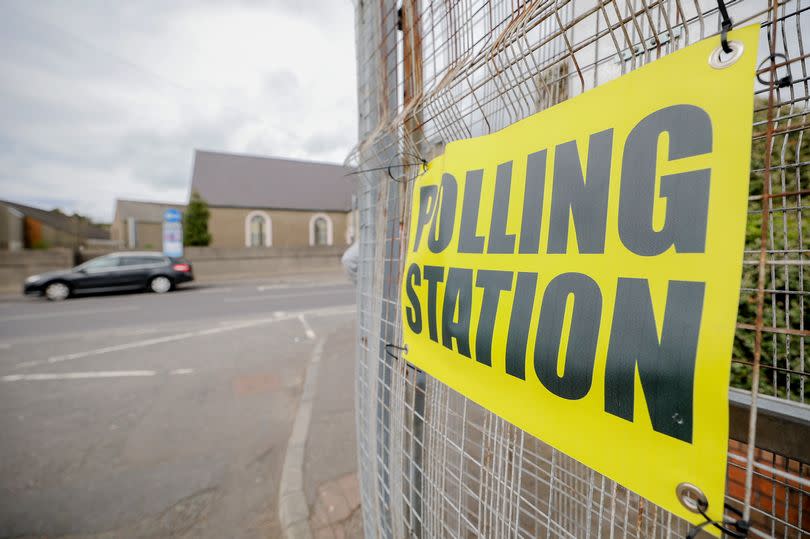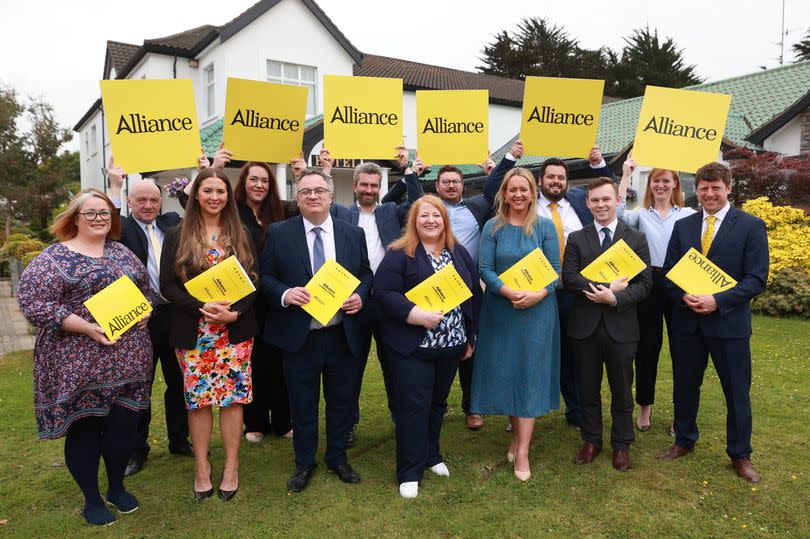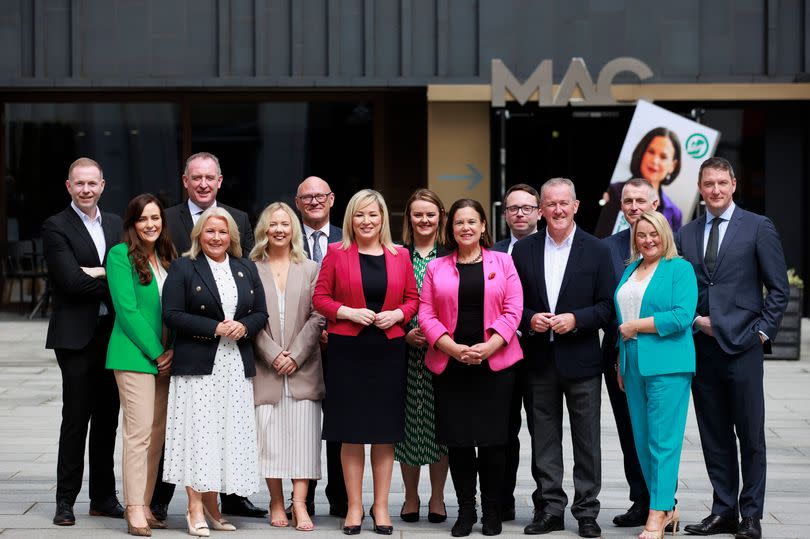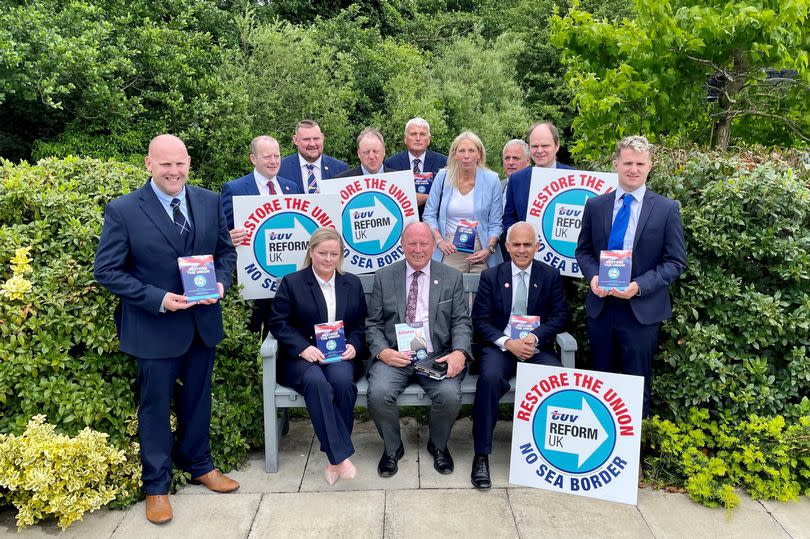Who should I vote for? The key policies of Northern Ireland political parties explained

Voters in Northern Ireland will head to the polls on July 4 to cast their ballot in the UK General Election 2024. The election will decide which politicians will represent the region in Westminster.
There are 650 Members of Parliament (MPs) and of these, there are 18 who represent each constituency in Northern Ireland. Candidates from our main political parties are battling it out to see who will win enough votes to get the seat in each area, with 136 candidates in the running.
Westminster also has control over issues which affect the UK as a whole, known as reserved or excepted matters. Stormont, on the other hand, is responsible for a range of issues covering every day life in Northern Ireland including agriculture, the economy, education, health, and infrastructure.
Read more: Details on how voting works for the General Election
Read more: Estimated times for General Election results in each NI constituency
But who should you vote for in the UK General Election? We have put together details of the key policies each major political party in Northern Ireland believes in, to help you make an informed decision on polling day.
Alliance Party

The Alliance Party is a liberal and centrist political party, and is currently the third largest party in Northern Ireland.
At the last Westminster election in 2019, the party secured one seat when deputy leader Stephen Farry won in North Down. Alliance are contesting in all 18 constituencies in Northern Ireland in the upcoming election.
In their election manifesto, the party set out their priorities at Westminster. These include reforming the political institutions at Stormont so no one party can collapse the institutions; advocating for a fair, welcoming and effective immigration system which meets the needs of the economy; and reforming UK democracy by supporting scrapping the Conservative Party's anti-protest laws, First Past the Post and introducing votes at 16.
DUP
The Democratic Unionist Party (DUP) is a unionist and conservative political party, and is currently the second largest party in Northern Ireland and the fifth largest party in the House of Commons prior to its dissolution.
The party is fielding candidates in 16 out of 18 constituencies, and this will be Gavin Robinson's first election as leader.
The stand-out policies in the party's manifesto include removing the so-called Irish Sea border, reforming legal migration to include a review of the salary threshold for migrant workers, get recurring funding for public sector pay awards, and work for increased farm support payments.
Other policies include opposing assisted suicide and improving access to health services, as well as scrapping the TV license and banning Sinn Féin from being able to claim expenses at Westminster.
Sinn Féin

Sinn Féin is an Irish republican and socialist political party, and is currently the largest party in Northern Ireland.
The party is running 14 candidates, standing aside in East Belfast, North Down and Strangford where Alliance is challenging unionists, as well as South Belfast where the SDLP is hoping to return to the green benches.
As for main policies in the party's Westminster manifesto, they include: the transfer of fiscal powers from Westminster to Stormont, the creation of an all-Ireland national health service, delivery on flagship projects like Casement Park, and opposition to the government's legacy act.
UUP
The Ulster Unionist Party (UUP) was the dominant unionist party in Northern Ireland for decades, however, in 2017 the party's two MPs were defeated, and no candidates were successful in the last Westminster election in 2019.
In this election, the party is standing in all of Northern Ireland's 18 constituencies bar one - Belfast North.
When it comes to the main policies in the party's manifesto, the health service is front and centre, with waiting times, recruitment, and budget cuts at the forefront. The manifesto raises the importance of staffing and how vital they are to make the health service work.
Focus is also given to more money and officers for policing, a long-term strategy for farmers, reducing corporation tax, and defending Northern Ireland's place in the Union.
SDLP
The Social Democratic and Labour Party (SDLP) is a social democratic and Irish nationalist political party.
The party won two Westminster seats at the last general election and is fielding candidates in all 18 constituencies this year. However, at the 2022 Northern Ireland Assembly election the SDLP lost four seats and finished with eight, meaning it had to go into opposition at Stormont.
Key policies in the party's manifesto include transforming the health service and reforming the Stormont institutions. Additionally, the SDLP are calling for the Legacy Act to be repealed, as well as further environmental protection, and improving Northern Ireland's financial settlement.
TUV

Traditional Unionist Voice (TUV) is a unionist party which was formed by former DUP member Jim Allister in 2007.
The TUV, which did not run in the 2019 General Election, formed an electoral alliance with Reform UK ahead of this year's poll and is standing in 14 constituencies in Northern Ireland. While it will only be the TUV name on the ballot paper on July 4, the parties are promoting a joint TUV/Reform UK message on the campaign trail.
The party places its long-state desire to remove post-Brexit trade barriers in the Irish Sea front and centre of its manifesto. Other policies include immigration, where the TUV said it agrees with Reform UK's position including a freeze on non-essential immigration. Additionally, the economy, traditional family values, and tourism are featured in the manifesto.
Green Party
The Green Party has origins in the labour and peace movements of the 1970s and early 1980s.
The party is running 11 candidates in this General Election with a view to building their vote. It follows two elections where the Greens lost their two MLAs and dropped to five council seats.
In their election manifesto, the Green Party NI outlines five key priorities including saving the environment, protecting public services, a wealth tax, reform of Stormont, and peace and justice globally.
People Before Profit
People Before Profit is a socialist political party operating in both Northern Ireland and the Republic of Ireland. The party is running three candidates in the upcoming General Election, in Foyle, Belfast West, and Belfast North.
Their election manifesto details they vow to challenge inequality by pledging a socialist alternative to a Tory agenda.
Key policies include redistributing wealth, establishing a £15 per hour minimum wage with state subsidies for small businesses, developing a national construction agency, offering universal free school meals, and giving asylum seekers the right to work and vote.
For all the latest news, visit the Belfast Live homepage here and sign up to our politics newsletter here.

 Yahoo News
Yahoo News 
